- Home
- Colm Toibin
Mad, Bad, Dangerous to Know
Mad, Bad, Dangerous to Know Read online
Thank you for downloading this Simon & Schuster ebook.
* * *
Get a FREE ebook when you join our mailing list. Plus, get updates on new releases, deals, recommended reads, and more from Simon & Schuster. Click below to sign up and see terms and conditions.
CLICK HERE TO SIGN UP
Already a subscriber? Provide your email again so we can register this ebook and send you more of what you like to read. You will continue to receive exclusive offers in your inbox.
For Mary-Kay Wilmers
Versions of these chapters were first given as the Richard Ellmann Lectures in Modern Literature at Emory University in Atlanta, Georgia, in November 2017.
INTRODUCTION
There is a peculiar intensity about some streets in Dublin that gets more layered the longer you live in the city and the more stray memories and associations you build up. With time, thoughts thicken and become richer, connect more. Sometimes this aura in the city can be greatly added to by history and by books.
On a busy day, nonetheless, it is possible to go into the General Post Office on O’Connell Street to post a letter or buy a TV license and not think at all at first about the 1916 Rebellion, which used the post office as its headquarters, or about MacDonagh and MacBride, Connolly and Pearse, the men who led the rebellion, or about Yeats’s lines:
When Pearse summoned Cuchulain to his side,
What stalked through the Post Office? What intellect,
What calculation, number, measurement, replied?
But then I turn and see the statue of Cuchulain, the mythical Irish warrior, made by Oliver Sheppard, which stands in the post office, and remember that Samuel Beckett once asked his friend Con Leventhal to betake himself “to the Dublin Post Office and measure the height from the ground to Cuchulain’s arse,” because Neary in Beckett’s novel Murphy wished to engage with the arse of the bronze Cuchulain by banging his head against it. Thus the mind, pondering on nothing much or the malady of the quotidian, can become bothered by heroes, by history, by headbangers.
Before they closed the Bank of Ireland branch at the corner of Pearse Street and Lombard Street East, which is a continuation of Westland Row, I used to walk down there regularly, since it was the branch where I had my account. Some days as I passed the National Library in Kildare Street on my way, I could think for a second about Leopold Bloom and the Kilkenny People and Stephen Dedalus and the ghost of Hamlet’s father. I had studied in the National Library almost every weekday for two years between 1973 and 1975 so I could muse on who stole my yellow bicycle in the spring of 1975, and then wonder if they still make a Bulgarian wine called Gamza that Buswells Hotel across the road used to serve very cheaply by the glass in those years, or remember how a friend one day, while we both stood smoking outside the portals of the library—the same portals that Joyce uses in A Portrait of the Artist as a Young Man—looking at the Dáil car park, remarked that Brian Lenihan, then a prominent politician, had hair that seemed to have been actually, by some ancient process, corrugated. Or recall, on my return from Spain in 1978, how strange I thought it was that there was only one real coffee machine in the whole city, in the Coffee Inn on South Anne Street.
And then I turn into South Leinster Street, where the bomb went off in 1974, and I try to remember how many precisely it killed and wonder why there is no memorial there, and then try to remember what the bomb had sounded like as I sat in the Reading Room of the National Library that late Friday afternoon. It was like nothing much in fact; it was more the silence afterwards and the much more exact memory I have of the rest of that evening in the mad, panicking city, watching each parked car with a mixture of suspicion and fear and disbelief, then drinking in Toner’s pub in Baggot Street until the early hours, cello music playing on the radio, broken by a hush as each news bulletin came on.
And then I half-notice the sign on the gable end of the building on the opposite side of the street as the curve of Lincoln Place comes into view. It says Finn’s Hotel. It is funny that the sign hasn’t faded more. James Joyce got two books out of it, or the title of the second anyway. Finn. Finnegan. It was here on June 10, 1904, that he met Nora Barnacle, who worked in the hotel. The two young strangers who had locked eyes stopped to talk, and they arranged to meet four days later outside the house where Sir William Wilde and his wife, Speranza, had lived, where they raised their son Oscar, who was four years dead by the time Joyce met Nora.
When Nora stood Joyce up on June 14, Joyce wrote to her ardently, pleading for another date: “I may be blind. I looked for a long time at a head of reddish-brown hair and decided it was not yours. I went home quite dejected. I would like to make an appointment but it might not suit you. I hope you will be kind enough to make one with me—if you have not forgotten me.” Later that day he wrote again: “I hear nothing but your voice . . . I wish I felt your head on my shoulder.” They walked out together for the first time on June 16, which is when their story began, and when Ulysses is set. It was lucky, I suppose, that their date wasn’t in the middle of November; then it would have been a shorter book. Or on Good Friday, when the pubs used to be closed. The thought occurs to me for a moment, as I think of those closed pubs and wine sales off bounds on Good Friday, that it was a dry business, a crucifixion. Especially towards the end. Only water came out of the wound in his side.
*
The street between Nora’s hotel and Wilde’s house is called Clare Street. Samuel Beckett’s father ran his quantity surveying business from Number 6 but there is no plaque here. When their father died in 1933, Samuel Beckett’s brother took over the business while Beckett himself, who was idling at the time, took the attic room. Like all idlers, he made many promises; in this case, both to himself and to his mother. He promised himself that he would write and he promised his mother that he would give language lessons. But he did nothing much. It would look good on a plaque: “This is where Samuel Beckett did nothing much.”
Like Wilde and Yeats, Beckett belonged to that group of Protestant geniuses who thought that they should write down their thoughts just as their landowning and powerful and money-owning colleagues were clearing out of Ireland or learning to keep quiet. They all came from different rungs of the social ladder. At the top was Lady Gregory, who had a big house and plenty of tenants; and then John Millington Synge, who had a small private income, as Beckett and Wilde did, and a memory of glory; and then W. B. Yeats, who worked hard all his life; and also poor Bram Stoker and George Bernard Shaw. And then Sean O’Casey, who was nearly blind he was so poor. All of them baptized into the wholly un-Roman and highly protestant church. And none of them believed a word of it, except poor Lady Gregory, who did indeed hope for heaven, unless O’Casey’s communism, which was of the high church sort—he supported the crushing of the Budapest Uprising in 1956, for example—was a sort of religion. It must be fun not believing in anything, and having your fellow countrypeople wanting you to clear off to England because of the very religion you don’t believe in.
This must be why a few of them became interested in posing and twisting things around and developing their eloquence and working on their silence. It must be why Oscar Wilde loved finding an accepted set of truths and then turning them sharply inside out, and why George Bernard Shaw loved a paradox and Elizabeth Bowen, who left later, loved the Irish Sea.
I turn into Westland Row, passing by Sweny’s chemist, and then down towards the bank. Mr. Beamish, my old bank manager, retired now, gave me money when no one else would. Samuel Beckett too had a friend called Beamish, Noelle Beamish, an Irishwoman who lived in the same French village as him during the war and left her long, utilitarian drawers out to dry beside her younger lover’s little frilly underthings.
>
So much has disappeared; so much stays in the memory. The bank is gone, the building is used for something else, and so, too, the old Academy Cinema, which was once the Antient Concert Rooms, where Joyce sang and where he set his story “A Mother.” I saw Fellini’s Amarcord in the Academy in the spring of 1975 with my friend Gerry McNamara. In those years, the Irish Film Censor used to cut the dirty scenes from films with a scissors, so it was only years later that I got to see the episode where the Italian boys all masturbate. It was not deemed fit for us then.
Gerry is more than twenty years dead now, and my friend Anthony Cronin, who introduced me to that bank and warned me not to push my luck if Mr. Beamish gave me a loan, is over two years gone. He lived for some time around the corner from here in Magennis Place when he came back from London in the late 1980s with the writer Anne Haverty, whom he later married. He loved these streets and side streets, relishing corners. One of his early poems is called “Liking Corners,” and it praises the places
Where corners collect the dust as well as sun—
Warm brick, warm fingered stone and bits of glass,
Minute particulars all afternoon . . .
In the years when he lived here, he wrote a love poem to Anne called “Happiness” about making his way home along Westland Row. The poem opens:
Sometimes, walking along Westland Row
Thinking that Anna will be there before him,
His happiness is so great,
He is like a walking jar,
Full to the very brim.
I miss his skepticism, his independence of mind, how funny he was. Once, after a play with much movement, little plot and no interval, a production much admired by all, he told me that it had permanently darkened his mind. “Permanently?” I asked him. “Are you sure?” He insisted that he was more than sure, he was certain: the damage had been permanent. And then a glimmer of slow amusement appeared in his eyes at the fact that at least we were out of the theater now, away from all the terrible choreography and actors running around the stage. “Oh, when I realized there would be no interval,” he chuckled, “I knew then that the damage would be permanent. That play has permanently darkened my mind.” He shook his head in mock despair.
When I was growing up in a small town two hours south of here, the same town where Anthony Cronin grew up, the train from Rosslare stopped at Westland Row as well as at Amiens Street on the north side of the city. So this street was my introduction to Dublin. I don’t know what age I must have been, but young enough to believe that you must, in order to cross a street, look left and then right and then left again, only to be told by my father as he started crossing Westland Row that in Dublin that rule didn’t really obtain, that if a car was far enough away then you could, in fact, cross quickly, even if it was moving towards you.
Westland Row was also a commuter stop for those going to work in the city center from the south side of Dublin. These included the poet Thomas Kinsella, who worked in the Department of Finance on Merrion Street. His poem “Westland Row,” from his volume Nightwalker, published in 1968, captures that sense of coming down into the street from the station platform above:
We came to the outer light down a ramp in the dark
Through eddying cold gusts and grit, our ears
Stopped with noise.
Kinsella noted the old diesel train passing along the rackety bridge overhead:
The engine departing hammered slowly overhead.
Dust blowing under the bridge, we stooped slightly
With briefcases and books and entered the wind.
Years ago, it must have been 1973 or 1974, when I sent Kinsella some poems I had written, he wrote me a long letter in response. I remember some of the words, although the letter is lost: “Live whatever way you can or have to, and pay attention perhaps to American poetry as a way of noting what others are doing.”
Almost forty years later, when they were making a television documentary about Thomas Kinsella, I went with him and stood at the gates of a house outside the town where I am from. This was the house where his wife, Eleanor, was born—I remember her mother as a most engaging and skillful whist player. This was the house where Kinsella set his poem “Another September,” the title poem of his 1958 volume, and we stayed watching the “apple trees, / Ripe pear trees, brambles, windfall-sweetened soil” that he had invoked more than half a century earlier.
As I move up Westland Row, reversing direction, going towards Clare Street, something in the air thickens. Much of the street is dingy looking; some of it is even derelict. It could be a city street in a run-down quarter of anywhere in these islands—Glasgow, Liverpool, Newcastle, London. The buildings—most of them built in the 1770s—are mainly three stories over a basement. The ones on the right-hand side belong now to Trinity College. I know that Joyce’s father spent time here, as did the parents of Oscar Wilde, John Stanislaus Joyce coming here in the 1870s, the Wildes two decades before that. It is hard not to imagine how desolate it must have been then in the years after the Famine when Dublin was a capital city from which the glory had departed. It had no parliament then, since Ireland had been ruled directly from Westminster following the Act of Union of 1800. As Belfast was becoming an industrial city, Dublin stagnated, or seemed to.
In his book Modern Ireland, Roy Foster wrote:
The non-industrial base of Dublin was one of the main reasons for the precarious and extremely impoverished condition of its proletariat by the late nineteenth century . . . The centre of the city was a byword for spectacularly destitute living conditions, exacerbated by the increasingly sharp division between the spacious bourgeois suburbs to the south and the central concentration of slum dwellings . . .
In the epilogue to his book Dublin 1660–1860, Maurice Craig began:
It is difficult to write with patience of the nineteenth century in Ireland. It is an era of slow decay and fitful growth . . . in truth the era has little discernible shape . . . For all its mass movements, it is an era of individuals, of occurrences apparently isolated and apparently without meaning . . . The capital has begun to take on an air of mild melancholy: after sixty years the loss of political status is beginning to induce an unmistakable feeling of provincialism . . . The personality of mid-Victorian Dublin is mysterious to our eyes: so much, we know, is stirring there: so little of it was apparent, or so it seems to us.
In his book Dublin: The Making of a Capital City, David Dickson, however, noted a growth in the lower middle class in the city that
came about for several reasons, but principally because of structural changes in the city economy from the 1830s, with the shift of manufacturing employment to commerce, and the re-emergence of Dublin as unchallenged national centre of wholesale trade . . . One-eighth of the male workforce by 1881 [the year before James Joyce was born; the year the Yeats family returned from London to Dublin and remained for six years] held transport-related jobs. Retail employment, large and small, was at least as important.
In 1862, the authorities created a new cattle market, which was, Dickson wrote, “supposedly the largest such market in Europe . . . and meant that the North Circular Road became the corridor for the hundreds of fattened bullocks and sheep that were driven down to the cattle boats every day in late summer and autumn.” Dickson also charts the expansion of clerical employment in the city “in every decade from the 1830s—in education and the police, in the prisons, hospitals and welfare institutions, in both civic and central government—with Dublin really benefiting from the high level of administrative centralization in Ireland compared with Victorian Britain.”
The nineteenth century was also a period of church building in the city. Dickson notes that St. Andrew’s Church in Westland Row, where Leopold Bloom spends time in Ulysses, “accommodated a standing congregation of 3,200.” The suburban train line that led south from Westland Row, the one from which Thomas Kinsella alighted, was the first to be built in the country. It was created two years before London’s first subu
rban railway. Regular service began towards the end of 1834. It carried the people from what Roy Foster calls “the spacious bourgeois suburbs to the south” into the city center.
Dublin, then, was poor, down at heel, in the years when Oscar Wilde’s father and W. B. Yeats’s father and James Joyce’s father lived in the city. Such growth as came was not due to industry or manufacturing; it came in the guise of transport and the increase in the number of clerks. Despite suburban expansion and improvement in infrastructure, the image of Dublin in the second half of the nineteenth century and the early years of the twentieth as a place of isolated individuals, its aura shapeless in some way, a place hidden from itself, mysterious and melancholy, remained intact, enough for James Joyce himself to see the city as “a centre of paralysis,” and for his younger brother Stanislaus, who left Dublin in 1905 and did not return, to deplore in his book My Brother’s Keeper the lack of that sense of tradition that had nourished the work of many novelists elsewhere and allowed characters in fiction to face choices and chances and seek their destiny with a kind of equilibrium.
“In [James Joyce's] A Portrait of the Artist,” Stanislaus wrote:
Dedalus speaks of a certain disadvantage at which Irish writers find themselves in using the English language. The very slight differences in the shades of meaning which English words may have for Englishmen can give pause, I fancy, only to Irishmen like Yeats or my brother, whose sensibility to words applies extreme tests. To me it seems that the real disadvantage of Irishmen is of quite a different nature. In Ireland, a country which has seen revolutions in every generation, there is properly speaking no national tradition. Nothing is stable in the country; nothing is stable in the minds of the people. When the Irish artist begins to write, he has to create his moral world from chaos by himself, for himself. Yet, though this is an enormous disadvantage for a host of writers of good average talent, it proves to be an enormous advantage for men of original genius, such as Shaw, Yeats, or my brother.

 The Magician
The Magician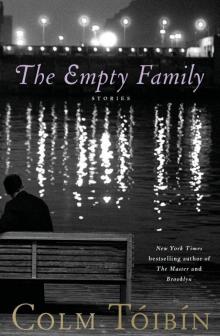 The Empty Family (v5)
The Empty Family (v5)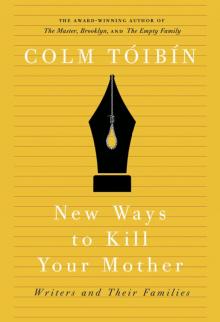 New Ways to Kill Your Mother
New Ways to Kill Your Mother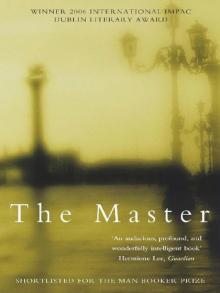 The Master
The Master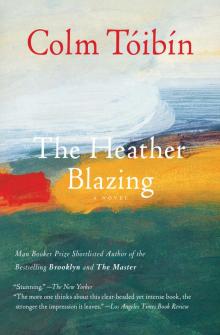 The Heather Blazing
The Heather Blazing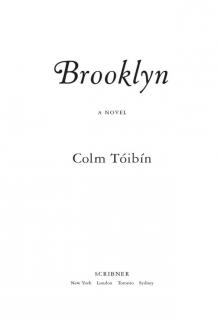 Brooklyn
Brooklyn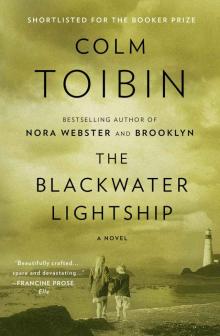 The Blackwater Lightship
The Blackwater Lightship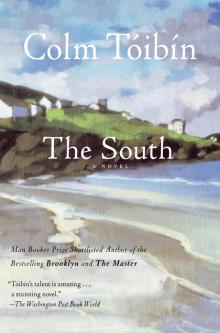 The South
The South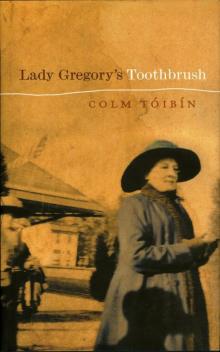 Lady Gregory's Toothbrush
Lady Gregory's Toothbrush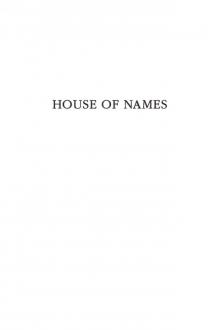 House of Names
House of Names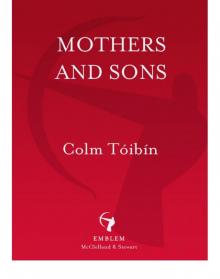 Mothers and Sons
Mothers and Sons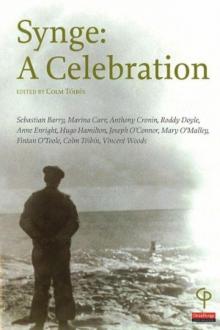 Synge
Synge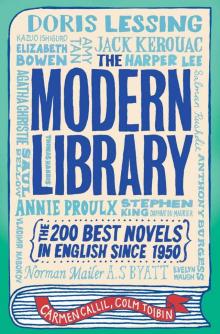 The Modern Library
The Modern Library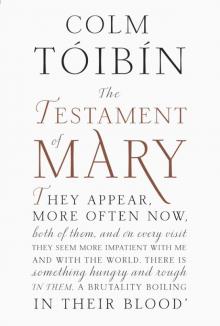 The Testament of Mary
The Testament of Mary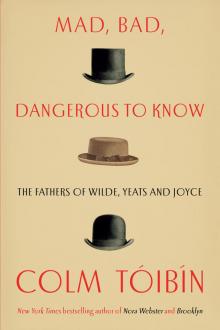 Mad, Bad, Dangerous to Know
Mad, Bad, Dangerous to Know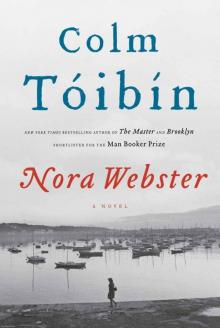 Nora Webster: A Novel
Nora Webster: A Novel